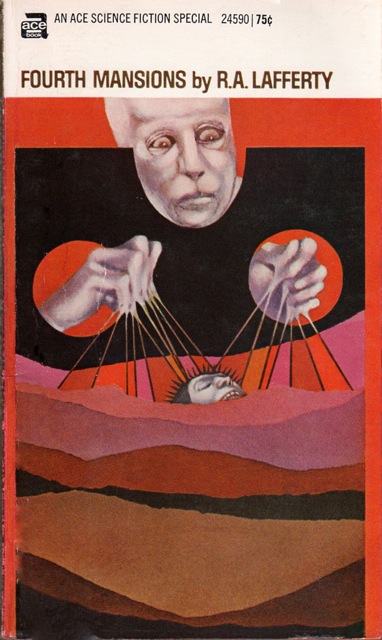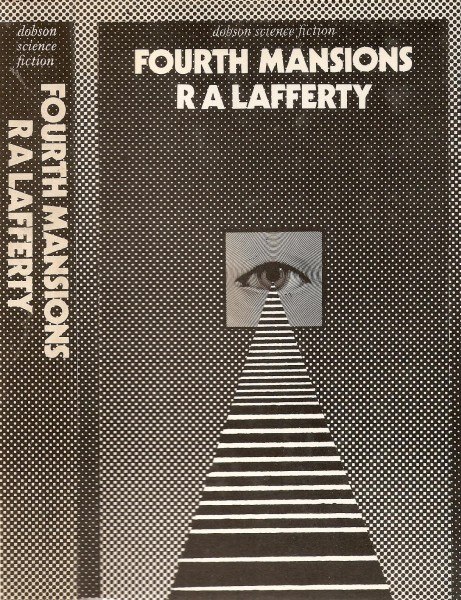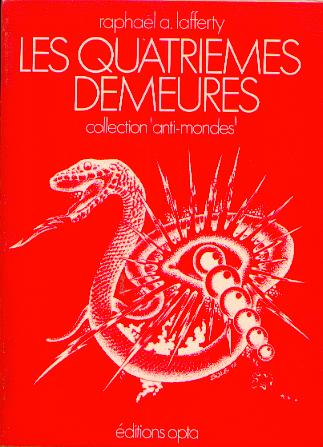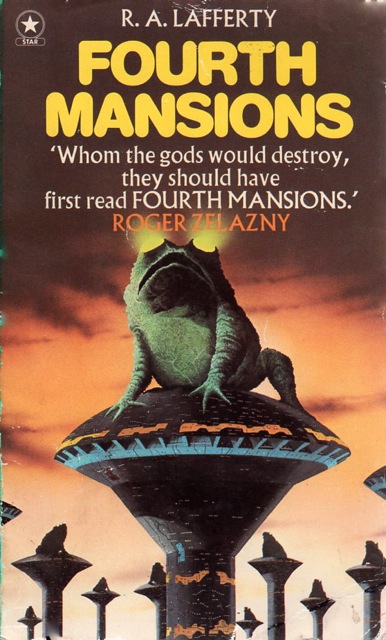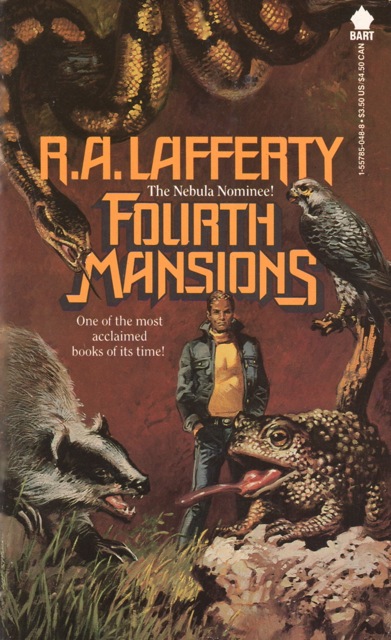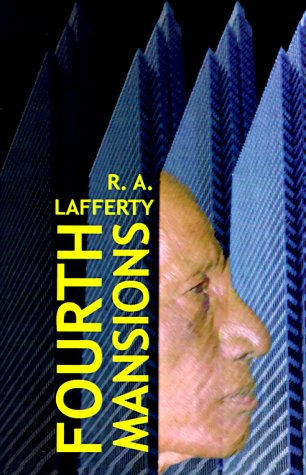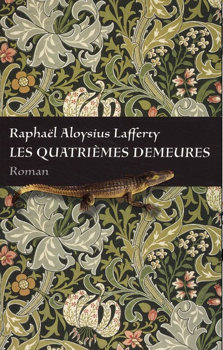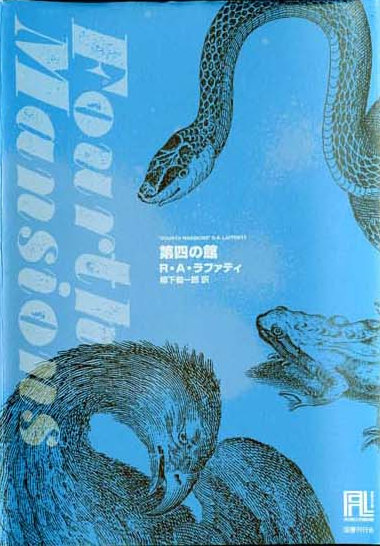Novels Fourth Mansions
Fourth Mansions
—R. A. Lafferty
-
- · 1969
- · 1988 David Pringle, Modern Fantasy: The Hundred Best Novels · 1971 Nebula Nominee, Best Novel · 1971 Locus 5th, Best Novel
“There was a young man who had very good eyes but simple brains. Nobody can have everything. His name was Freddy Foley and he was arguing with a man named Tankersley who was his superior. “Just how often do you have to make a total fool of yourself, Foley?” Tankersley asked him sharply. Tankersley was a kind man, but he had a voice like a whip. “An enterprising reporter should do it at least once a week, sir, or he isn't covering the ground,” Fred Foley said seriously.”
- —R. A. Lafferty
“It may be that you will like Fourth Mansions and you may find yourself a little bit like Freddy Foley in it, in youth and openness at least. It was for his openness that a number of amazing worlds happened to him and can happen to you. I have picked out four human aspects or movements in this, out of many, which are deformities and monstrosities in isolation, but which should be strengths when integrated in the person and group personality. At least that is what I have tried to do. Even the Patricks must have their place in the integrated personality and they must have their place in you.”
- —R. A. Lafferty, Letter to Guy Lillian, Challenger #16 (1969)
“... then there is the book Fourth Mansions which I worked into the context of Las Morada (The Mansions) of Teresa of Avila (the English version is usually called The Interior Castle). There are seven sets of Mansions or steps to perfection, but the Fourth Mansions is the perilous step, the midpoints where the devil and his principalities counter-attack with all their fury. And that counter-attack, really the scenario of today's world, is the theme of my book.”
- —R. A. Lafferty, Interview by Tom Jackson, Lan's Lantern #39 (1991)
- · Martin Crookall (2019) · East of Laughter (2014) · Daniel Petersen (2014) · trawlerman (2014) · trawlerman (2014) · Simon Crook (2013) · Daniel Petersen (2011) · Milora (2011) · Jacques Barberi (2010) · Mulle Kybernetik (2006) · Mark Moskowitz (2002) · Grand Lodge of BC (2001) · David Pringle (1988) · Wikipedia · Goodreads · Amazon · Amazon
Copyright & Licensing: If you submit a comment, you agree to license the original text of your comment as CC-BY-4.0, allowing others to share and adapt your comment for any purpose, even commercially, as long as attribution is given and changes are indicated. Please see the full license.
Literary criticism of Lafferty has been sparse, and valuable essays remain out of print due to unclear license or estate status. The CC-BY license provides an option for Lafferty scholars to republish and critique your writing, and enables Lafferty archivists to migrate comments to new platforms and media.

